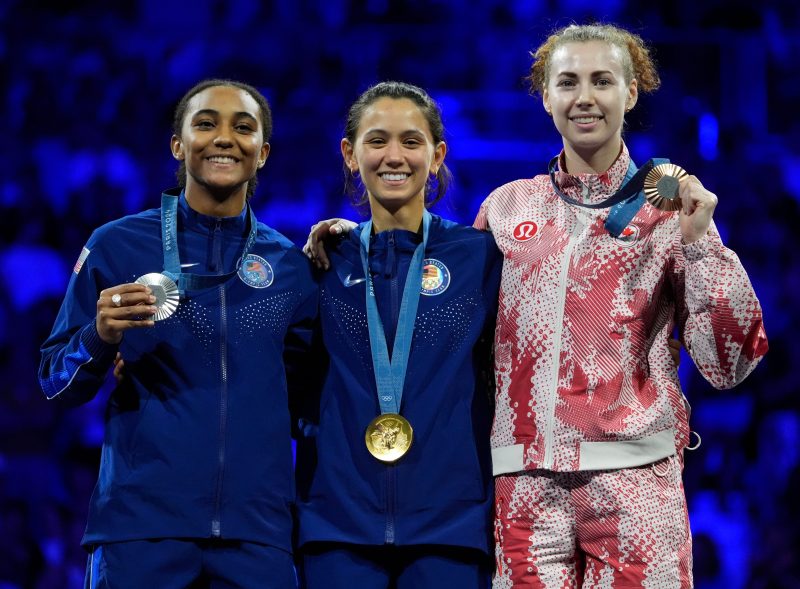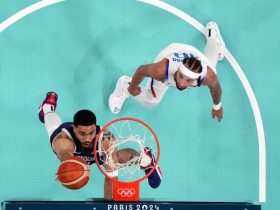PARIS — Lee Kiefer smiled at the thought of what people had just witnessed. At what she’d just helped deliver Sunday night to Olympics viewers around the world.
It’d been an All-American fencing final, Kiefer and Lauren Scruggs battling in the gold medal match of the women’s individual foil competition.
“It was so cool being in a final with Lauren, because we’re both about 5-3, 5-4,’’ Kiefer said, referring to their relatively small stature in the world of fencing. “We’re both very athletic and we’re very creative. And I think that’s really cool for the sport, and I think it’s going to inspire a lot of little girls.’’
Kiefer won the match, 15-6, and the gold. Scruggs won the silver. But perhaps there was another victory to evaluate in the years to come.
The little girls.
2024 Olympic medals: Who is leading the medal count? Follow along as we track the medals for every sport.
If they’re inspired the way Kiefer hopes they are — to try fencing, if not truly pursue it — the impact will cut across a wide spectrum.
New Yorker finds path
Scruggs became the first Black American woman to win an Olympic medal in individual competition, according to USA Fencing. (Three Black American women won fencing medals in team competition, according to USA Fencing.)
“Fencing has largely, certainly been a non-Black sport,’’ Scruggs said. “So I hope to inspire young Black girls to get into fencing, so that they can have a place in the sport.
“I just hope that more people who look like me, girls that look like me, feel they have a place in the sport.’’
It was her brother’s fascination with ‘Star Wars’ and light sabers that led Scruggs to fencing, after her mother apparently found an ad for lessons near their home in Queens, N.Y.
‘He actually wanted to quit fencing after a few months,’ Scruggs recalled of her brother, ‘but my mom had already bought all the equipment and it was pretty expensive so she was like, ‘You’re doing it.”
Turned out he was was pretty good. Turned out Lauren Scruggs was even better.
Training at the Peter Westbrook Foundation, she developed into one of the top junior fencers in the world. It led her to Harvard, where last year she won an NCAA championship in foil.
Now, she’s 21 and owns an Olympic silver medal.
Kentucky offers path
Like Scruggs, Kiefer also has a unique background. Her mother was born in the Philippines and geography created challenges toward attaining fencing greatness.
But fencing runs deep in the family, too. Kiefer’s father, Steve, was a captain of the Duke fencing team. But geography tested the durability of the sport.
Kiefer was born in Kentucky, a hotbed of basketball, not children wielding fencing blades and yelling, ‘En Garde!’
But Lee Kiefer wasn’t alone. She has an older sister, a younger brother, and the fencing family expanded.
The Kiefers found a fencing school, and Lee Kiefer’s skill and passion grew.
It was out there on the strip Sunday night inside the Grand Palais, as the 30-year-old Kiefer dipped and darted against the 21-year-old Scruggs.
Two little girls all grown up, as they competed at the Olympics in a moment of inspiration.
“It’s just sick to see the American flag up there,’’ Scruggs said. “We love to see that.’’






